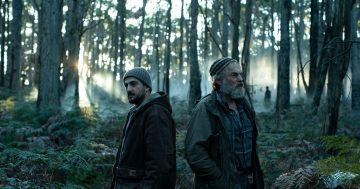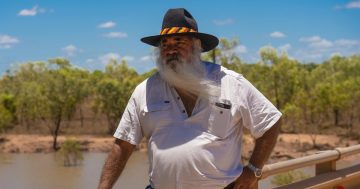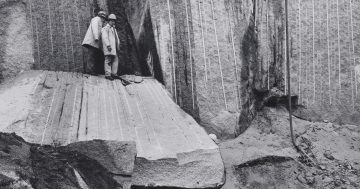Reviewed by Robert Goodman.
By Jane Harper, Pan Macmillan, $32.99.
 Jane Harper burst onto the crime scene with The Dry, a book set in a small Victorian rural community beset by drought. Her second book, Force of Nature returned with the character of Aaron Falk as investigator and while there are few easter egg connections to The Dry, her third book The Lost Man is a standalone mystery. In some ways it covers similar territory to The Dry – a rural community, an apparent or possible suicide and plenty of secrets – but shows a development in confidence and style.
Jane Harper burst onto the crime scene with The Dry, a book set in a small Victorian rural community beset by drought. Her second book, Force of Nature returned with the character of Aaron Falk as investigator and while there are few easter egg connections to The Dry, her third book The Lost Man is a standalone mystery. In some ways it covers similar territory to The Dry – a rural community, an apparent or possible suicide and plenty of secrets – but shows a development in confidence and style.
The book opens with the discovery of a body. Cameron Bright has been found, dead from dehydration, at the lonely single grave of a long forgotten stockman. It appears that he walked nine kilometres from his vehicle, became disoriented and never made it back. The place is outback Queensland, 1500 km west of Brisbane where pastoral properties are the size of, well, pick any smallish country in Europe. It is a large, empty landscape in which it is easy to go missing, cars are sporadic and people stay in touch by radio. And in summer the heat is relentless, unforgiving and potentially deadly.
Cameron is the middle of three brothers – Nathan, the older, lives on his own on a small slice of land, outcast for reasons that slowly become clear, and Bub, the now grown up baby of the family. Bub lives with the rest of the family on the remainder of the Bright family property which was run by Cameron. Cameron’s death throws the future of the property into doubt, a situation that provides plenty of motive and suspects.
The first diversion from the pattern that Harper has set in her previous two books is that there is no detective. In fact, while some aspects of Cameron’s death do not quite add up, it is unclear to anyone for a long time whether or not there was even a crime. The narrative focuses on Nathan as he slowly, and sometimes accidentally, uncovers family secrets. This allows Harper to explore the brothers’ past and in particular their fractious and damaging relationship with their abusive father. Nathan has his own problems which also emerge slowly but organically as his sometimes unwitting investigation gathers momentum. This makes The Lost Man a quieter and more focused book than Harper’s previous two but does not make it any less compelling.
The aspect that Harper has always handled well – the Australian landscape and peoples’ relationship with it – is again on show in full force. The landscape which these families farm well-described. This is not a drought-ridden landscape, as in The Dry, it is sparse but productive so long as cattle are free to roam widely. The emptiness creates an everyday reality for the people who live there that in summer temperatures will soar into the high forties and that some roads will see no traffic for days on end so travellers need to be prepared. This environment also creates a set of social rules involving people looking out for each other no matter how they relate socially, which Harper both explores and plays on throughout the plot.
The Lost Man is not only a well constructed, engaging mystery but Harper continues to effectively explore issues of domestic violence and sexual abuse, slowly building a picture of both the abusers and the abused through action and dialogue well before any actual events are discussed. She writes complex characters who are universal but also uniquely Australian, shaped or influenced by the landscapes in which she locates them. While there was little doubt after her debut, The Lost Man shows Harper cementing her place as a major, important talent in Australian crime fiction.
This and over 300 more reviews can be found at www.pilebythebed.com.











